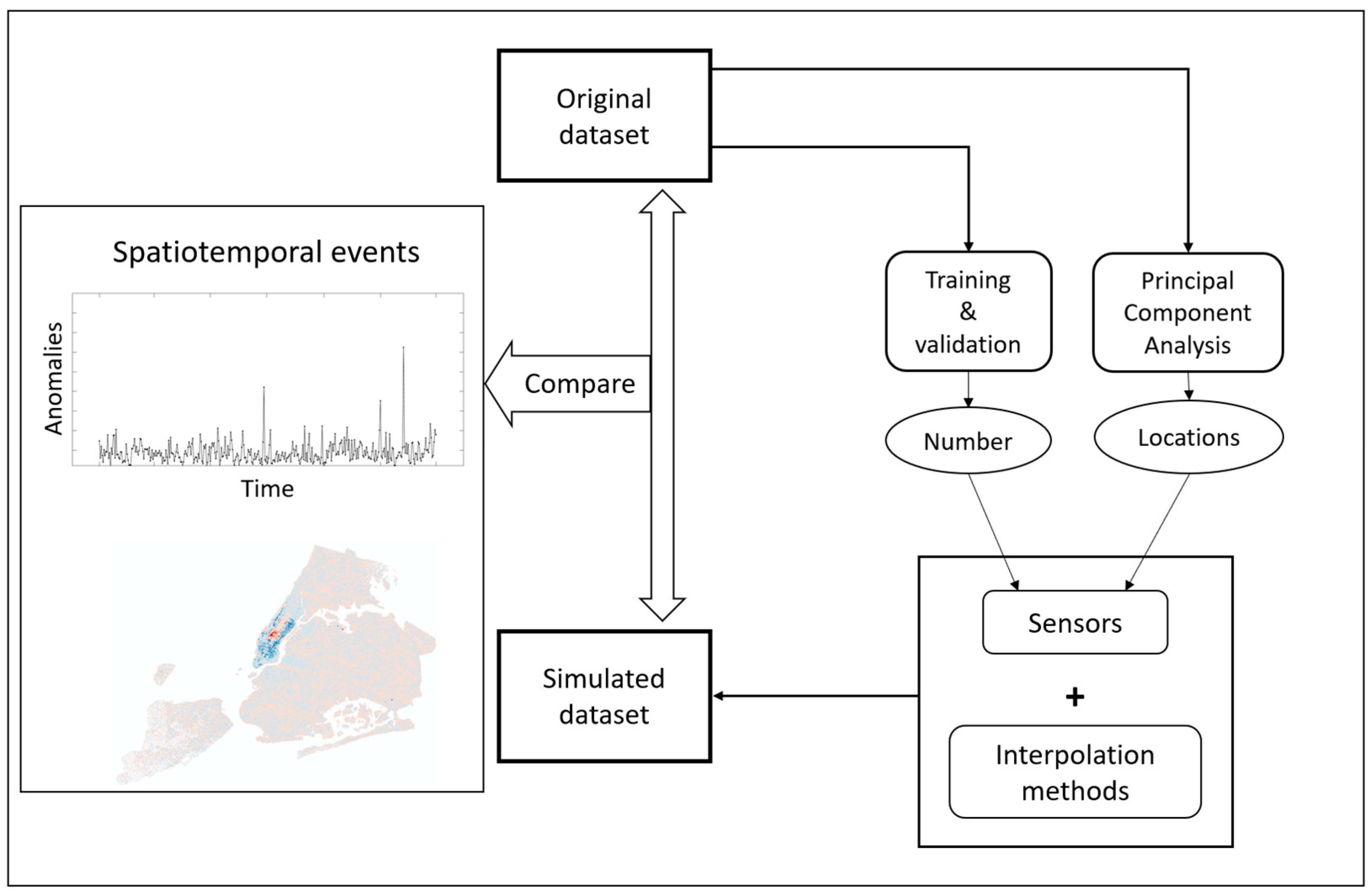New article: A Sensor-Based Simulation Method for Spatiotemporal Event Detection
Our new article titled “A Sensor-Based Simulation Method for Spatiotemporal Event Detection” is published in the ISPRS International Journal of Geo-Information.
Read full article here!
Abstract
Human movements in urban areas are essential to understand human–environment interactions. However, activities and associated movements are full of uncertainties due to the complexity of a city. In this paper, we propose a novel sensor-based approach for spatiotemporal event detection based on the Discrete Empirical Interpolation Method. Specifically, we first identify the key locations, defined as “sensors”, which have the strongest correlation with the whole dataset. We then simulate a regular uneventful scenario with the observation data points from those key locations. By comparing the simulated and observation scenarios, events are extracted both spatially and temporally. We apply this method in New York City with taxi trip record data. Results show that this method is effective in detecting when and where events occur.
Keywords: event detection; human mobility; discrete empirical interpolation method (DEIM); principal component analysis

